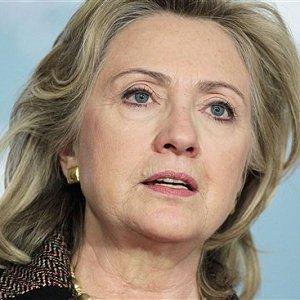Why do we still go to war? We seem unable to stop. We find any excuse for this post-imperial fidget and yet we keep getting trapped. Germans do not do it, or Spanish or Swedes. Britain's borders and British people have not been under serious threat for a generation. Yet time and again our leaders crave battle. Why?Simon Jenkins in Guardian. Here
Last week we got a glimpse of an answer and it was not nice. The outgoing US defence secretary, Robert Gates, berated Europe's "failure of political will" in not maintaining defence spending. He said Nato had declined into a "two-tier alliance" between those willing to wage war and those "who specialise in 'soft' humanitarian, development, peacekeeping and talking tasks". Peace, he implied, is for wimps. Real men buy bombs, and drop them.
This call was echoed by Nato's chief, Anders Fogh Rasmussen, who pointed out how unfair it was that US defence investment represented 75% of the Nato defence expenditure, where once it was only half. Having been forced to extend his war on Libya by another three months, Rasmussen wanted to see Europe's governments come up with more money, and no nonsense about recession. Defence to him is measured not in security but in spending.
Libya has cost Britain £100m so far, and rising. But Iraq and the Afghan war are costing America $3bn a week, and there is scarcely an industry, or a state, in the country that does not see some of this money. These wars show no signs of being ended, let alone won. But to the defence lobby what matters is the money. It sustains combat by constantly promising success and inducing politicians and journalists to see "more enemy dead", "a glimmer of hope" and "a corner about to be turned".
Victory will come, but only if politicians spend more money on "a surge". Soldiers are like firefighters, demanding extra to fight fires. They will fight all right, but if you want victory that is overtime.
It is not democracy that keeps western nations at war, but armies and the interests now massed behind them. The greatest speech about modern defence was made in 1961 by the US president Eisenhower. He was no leftwinger, but a former general and conservative Republican. Looking back over his time in office, his farewell message to America was a simple warning against the "disastrous rise of misplaced power" of a military-industrial complex with "unwarranted influence on government". A burgeoning defence establishment, backed by large corporate interests, would one day employ so many people as to corrupt the political system. (His original draft even referred to a "military-industrial-congressional complex".) This lobby, said Eisenhower, could become so huge as to "endanger our liberties and democratic processes".
Eisenhower
I wonder what Eisenhower would make of today's US, with a military grown from 3.5 million people to 5 million. The western nations face less of a threat to their integrity and security than ever in history, yet their defence industries cry for ever more money and ever more things to do. The cold war strategist, George Kennan, wrote prophetically: "Were the Soviet Union to sink tomorrow under the waters of the ocean, the American military-industrial complex would have to remain, substantially unchanged, until some other adversary could be invented."
Showing posts with label Robert Gates. Show all posts
Showing posts with label Robert Gates. Show all posts
Sunday, June 19, 2011
Eisenhower's worst fears came true. We invent enemies to buy the bombs
Saturday, March 26, 2011
The secret of Hillary Clinton's sudden interest in Libya
US secretary of state Hillary Clinton has emerged as the leading voice of the Barack Obama administration on Libya. She has been most vociferous about the support for 'democratic forces' (rebels) in Libya. She spearheaded the diplomatic campaign for UN resolution. She travelled to Cairo and Tunis to discuss Arab participation. She attended the summit in Paris last Monday to flesh out the coalition to implement Resolution 1973. She began interpreting the scope of R-1973. She is traveling back to London next week for the 'contact group' meeting on Libya.
And now, above all, she has announced that US is taking the next step in the war by transferring command and control to NATO. "We are taking the next step: We have agreed along with our NATO allies to transition command and control for the no-fly zone over Libya to NATO."
Furthermore, Clinton went one step ahead and anticipated that it is a matter of time before NATO is put in charge of the entire mission. "All 28 allies have also now authorized military authorities to develop an operations plan for NATO to take on the broader civilian protection mission." (Hey, where is Robert Gates?) Do UAE or Qatar have any problem operating under NATO? No. Because Clinton sorted it out with her Arab counterparts at the Paris meeting. Quite obviously, this isn't Obama Gates' war. Both have taken low-key roles while Clinton is leading and is in full cry.
What is there in Libya for Clinton? Significantly, Clinton is getting strong support principally from two unlikely camps: the interventionists and neocons in US. But what is not obvious in the ongoing discourses - or, more precisely, what is not being openly discussed - is that the Israeli Lobby has been in the vanguard of the campaign for the intervention in Libya. A large NATO presence in Libya is a huge security guarantee for Israel at a time when it faces the spectre of isolation in the Middle East.
Veteran diplomat M K Bhadrakumar in his blog. More Here.
Subscribe to:
Posts (Atom)


